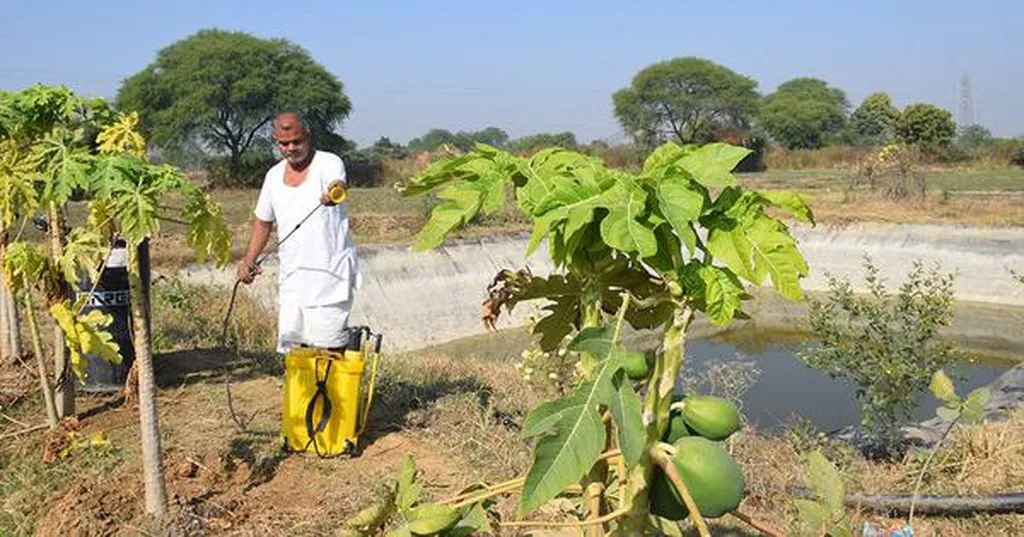In the heart of India, where agriculture is not just a livelihood but a way of life, farmers are facing an unprecedented challenge: climate change. A recent study, published in the ‘International Journal of Bio-Resource and Stress Management’, delves into the socio-economic and psychological profile of farmers in Madhya Pradesh, a state where agriculture and natural resources form the backbone of the economy. The research, led by Pankaj Kumar Meghwal from the Dept. of Agricultural Extension at Junagadh Agricultural University, offers a glimpse into how farmers are grappling with the realities of climate change and what this means for the future of agriculture.
The study, conducted in the districts of Neemuch and Mandsaur, revealed that a significant majority of farmers—70%—are actively making high-level decisions to adopt mitigation and adaptation practices in response to climate change. This is a telling statistic, indicating that farmers are not merely passive victims of climate change but are actively seeking ways to adapt and mitigate its impacts.
“Farmers are on the front lines of climate change,” said Meghwal. “They are the ones who see the changes in weather patterns firsthand and feel the immediate impacts on their livelihoods. This study shows that they are not just waiting for solutions to come to them; they are actively seeking and implementing strategies to adapt.”
The socio-economic and psychological profile of these farmers is crucial for understanding how best to support them. The study found that farmers’ decisions are influenced by a complex interplay of factors, including their economic status, access to information, and psychological resilience. This underscores the need for tailored interventions that consider the unique circumstances of each farming community.
The commercial impacts of climate change on agriculture are profound. Crop yields, livestock productivity, and overall farm profitability are all at risk. However, the study’s findings suggest that farmers are not merely bracing for the worst; they are actively seeking ways to adapt and mitigate the impacts of climate change. This proactive approach could be a game-changer for the agriculture sector, helping to ensure food security and economic stability in the face of a changing climate.
As Meghwal noted, “Understanding the socio-economic and psychological profile of farmers is the first step in developing effective strategies to support them. This study provides valuable insights that can guide policymakers, agricultural extension services, and other stakeholders in their efforts to help farmers adapt to climate change.”
The study’s findings have significant implications for the future of agriculture. By understanding the factors that influence farmers’ decisions, stakeholders can develop more effective strategies to support them. This could include providing access to better information, improving economic conditions, and building psychological resilience. Ultimately, this research could help shape a more resilient and sustainable agriculture sector, capable of withstanding the challenges posed by climate change.
In the face of climate change, the resilience and adaptability of farmers are more important than ever. This study sheds light on the socio-economic and psychological factors that influence their decisions, providing valuable insights for stakeholders seeking to support them. As the agriculture sector grapples with the impacts of climate change, this research offers a roadmap for building a more resilient and sustainable future.

